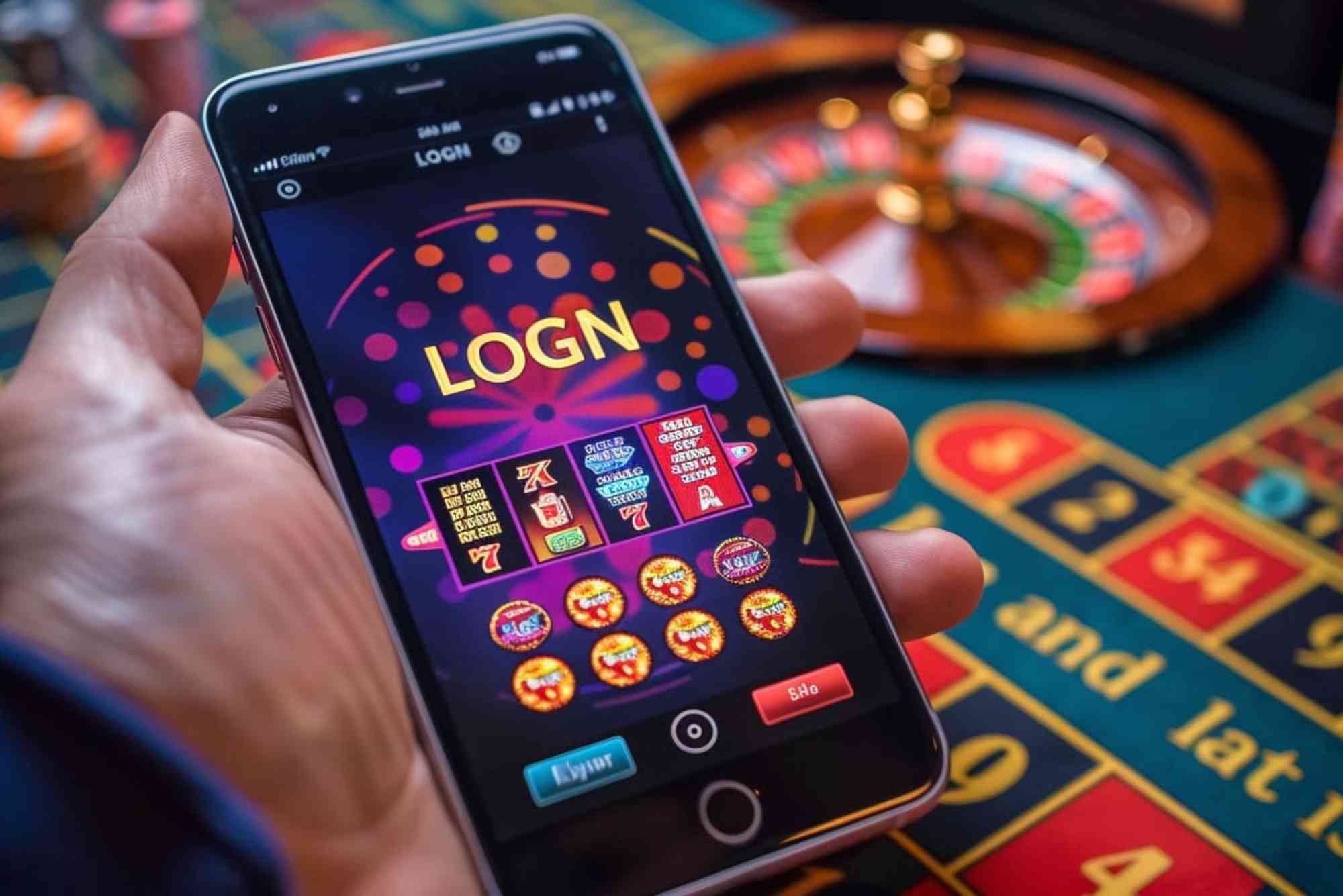It’s one of the most common questions players ask before placing their first bet online: are casino games actually fair, or are they secretly rigged? With so much money at stake and the digital nature of modern gambling, skepticism is natural. After all, unlike a real table game in a physical casino, you can’t see the dealer shuffle cards or watch the roulette wheel spin with your own eyes.
As someone who’s spent years exploring both land-based and online casinos, I can confirm that the answer isn’t black and white. Most reputable platforms operate fairly under strict regulations — but that doesn’t mean there aren’t exceptions. Understanding how fairness is maintained (and how to spot when it’s not) is crucial to gambling safely and confidently.
How Casino Games Work Behind the Scenes
Every casino game, whether it’s slots, roulette, blackjack, or poker, runs on math. The foundation of online gaming fairness is something called the Random Number Generator (RNG) — a software algorithm that ensures every result is entirely random and independent of previous outcomes.
Think of it as a digital dice roller. When you hit “spin” or “deal,” the RNG produces a random number sequence that determines what appears on screen. This process happens in milliseconds, making it virtually impossible to predict or manipulate manually.
In licensed casinos, RNGs are rigorously tested and certified by third-party auditing agencies like eCOGRA, iTech Labs, and GLI (Gaming Laboratories International). These bodies ensure that the game’s outcomes aren’t biased in favor of the house beyond the built-in odds that every game naturally has.
This is a crucial distinction. Casino games are designed for the house to have an edge, not to cheat. That edge — known as the house advantage — is openly built into the game’s math. For example, roulette’s green zero gives the casino a small long-term advantage, but the wheel’s spins themselves remain fair and unpredictable.
The Role of the Best Gambling Sites UK
When it comes to fairness, not all casinos are created equal. The best gambling sites uk stand out because they are licensed and regularly audited by authorities like the UK Gambling Commission and the Malta Gaming Authority. These platforms must adhere to strict standards that protect players from rigged software or shady practices.
Regulated UK casinos also use SSL encryption for transactions, publish Return to Player (RTP) percentages for every game, and provide self-exclusion tools to promote responsible gambling. Most importantly, they don’t control the outcome of games — they host content from independent software providers such as NetEnt, Microgaming, and Playtech.
Each of these developers is separately regulated, which means the games they provide to multiple casinos are identical across platforms. Whether you play a slot game on one site or another, the randomization and payout rates remain the same. This multi-layered oversight system makes it almost impossible for a legitimate online casino to tamper with game results.
However, not every gambling website on the internet is licensed or trustworthy. Offshore operators that lack proper regulation may use unverified RNGs, unfair odds, or even manipulate results. That’s why it’s essential to verify a casino’s credentials before signing up — and why UK-licensed platforms are among the safest options in the world.
How Auditing and RTP Certification Ensure Fairness
Every legitimate online casino game displays a Return to Player (RTP) percentage. This number, usually between 94% and 99%, indicates the average payout to players over thousands of spins or rounds. For example, a slot with a 96% RTP will return £96 for every £100 wagered — in the long run.
These figures aren’t random claims from casinos; they’re verified by independent auditors. Testing agencies simulate millions of game rounds to ensure that the real-world payout matches the advertised RTP. If discrepancies appear, the game fails certification and cannot legally operate in regulated markets.
Moreover, many regulators require ongoing audits, not just one-time checks. This continuous testing means that if a developer updates a game or changes its code, it must pass fairness verification again. Players can often find a link to the casino’s latest audit certificates at the bottom of the site or within the game’s “About” or “Information” section.
In short, transparency is the strongest proof of fairness. A site that hides its audit results or doesn’t disclose game providers should immediately raise suspicion.
Player Experiences: When Games Feel “Rigged”
Even at fair casinos, many players experience long losing streaks that feel rigged. This perception often comes down to psychology rather than programming. Humans are naturally wired to detect patterns, even in randomness. When several losses occur in a row, it’s easy to assume manipulation — but that’s simply how probability works.
For example, if you flip a coin ten times, there’s a real chance it could land on heads eight times in a row. The coin isn’t biased; that’s just variance. The same applies to slots, roulette, or blackjack — randomness doesn’t guarantee balance in the short term, only over time.
Another common misconception is that casinos adjust odds based on player performance. In reality, each spin or deal is independent. You could win three jackpots in a day or lose fifty rounds straight without the system “correcting” itself. It’s purely statistical chance, not a reaction to your betting history.
However, where players do encounter rigged experiences is typically on unlicensed or fraudulent sites. These operators can fake RNGs or alter payout data to favor the house drastically. That’s why it’s always vital to research a site’s background, check player reviews, and ensure they display proper certification.
How Software Providers Protect Fairness
Game developers have a vested interest in maintaining fairness and credibility. Industry leaders like Evolution Gaming, Pragmatic Play, and NetEnt invest millions in compliance because one integrity breach could ruin their reputation globally.
For live dealer games, fairness is ensured through multiple cameras, human dealers, and live streaming monitored by third parties. Every card dealt or roulette spin is visible to players in real time, creating transparency that’s nearly impossible to fake.
Meanwhile, in RNG-based games, cryptographic algorithms ensure unpredictability. Some modern casinos even use Provably Fair Technology, allowing players to verify random outcomes through blockchain encryption. This innovation has become popular in crypto casinos, offering mathematical proof that results haven’t been tampered with.
So while it’s understandable to be cautious, the majority of major online casino software providers are subject to such extensive regulation that “rigging” simply isn’t worth the risk.
Choosing Fair Casinos: A Personal Approach
In my experience, fairness in online casinos comes down to three main pillars: licensing, transparency, and player feedback. A casino that holds a UKGC or MGA license, publishes verified RTP rates, and maintains a responsive support team is typically trustworthy.
Before depositing, I always check:
- Does the site list its license number and regulatory body?
- Are the games provided by recognized developers?
- Are there independent player reviews confirming smooth withdrawals and consistent gameplay?
Whenever I’ve stuck to those criteria, I’ve rarely encountered issues. The times I did run into trouble — delayed withdrawals, suspicious game results — were always on unverified or poorly reviewed platforms. It’s a lesson many players learn the hard way: chasing bonuses on unknown sites can cost you far more than you win.
The Future of Fair Play in Online Casinos
As technology advances, fairness in gambling is becoming more transparent and verifiable than ever. Blockchain-based casinos, for example, allow players to audit every game outcome themselves, removing the need for blind trust. Artificial intelligence also helps regulators identify unusual payout patterns that may indicate manipulation or technical faults.
In the coming years, fairness certification will likely become even stricter. Regulators are already pushing for clearer public audits, safer payment systems, and improved responsible gambling tools. This evolution benefits everyone — players gain more confidence, and legitimate operators build stronger reputations.
Fair play isn’t just a legal requirement anymore; it’s a competitive advantage. The most successful casinos are the ones that prove their honesty, not just claim it.
Final Thoughts: Are Casino Games Rigged or Fair?
So, are casino games rigged or fair? The truth is that legitimate, licensed casinos are fair, and the outcomes you experience are genuinely random. The perception of being “rigged” often stems from misunderstanding probability or playing on the wrong kind of site.
If you stick to reputable, regulated platforms like the best gambling sites UK, you can rest assured that your chances are as real as the luck you bring to the table. But venture into unlicensed territory, and the risks multiply quickly.
In the end, fairness comes down to choosing wisely. Always verify licensing, look for independent audits, and play with moderation. Because while the thrill of the game is unpredictable, your safety online shouldn’t be.



